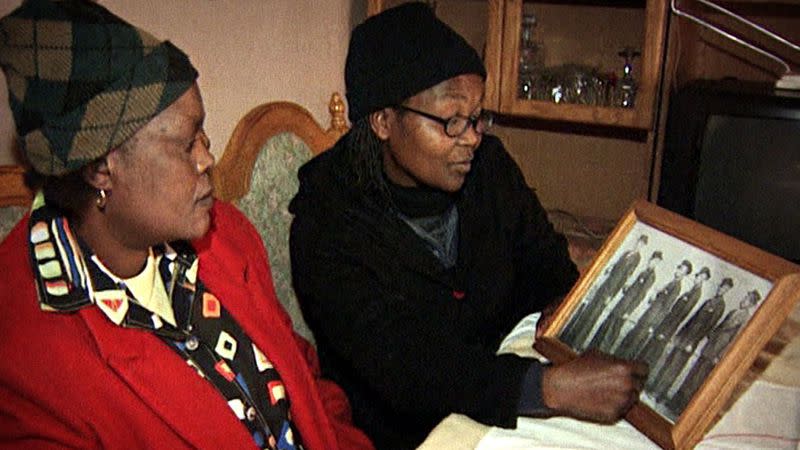'The Lion King' and the controversial history of 'The Lion Sleeps Tonight'

Disney’s latest blockbuster, its flashy new The Lion King remake, is coming to cinemas 25 years after the original animated feature was released.
Jon Favreau’s photorealistic version will feature all of the original songs, including some new ones, but the onscreen return of ‘The Lion Sleeps Tonight’ comes with a lot of baggage. The instantly hummable song is once again performed by meerkat-warthog duo Timon and Pumbaa (voiced by Billy Eichner and Seth Rogen in the remake) in a lighthearted moment, but for the family of the man who actually wrote the song back in the 1930s, it’s likely to be a bittersweet moment.
The relatives of Solomon Linda has endured decades of heartache over the song that has been covered countless times, used in Disney’s film and its hugely successful stage musical, earning piles of money for everyone, except them.
The history of The Lion Sleeps tonight
For many the song was best known as a pop hit released by The Tokens in 1961, with lyrics written by George David Weiss, but it was actually inspired by the song ‘Mbube’ written, recorded and performed by South African musician Solomon Linda.

‘Mbube’, which means “lion” in Zulu, was recorded by Linda and his group The Evening Birds at Gallo Records, where he was working as a record packer, and it was released in 1939.
It became a hit throughout South Africa by 1948, selling 100,000 copies in Africa as well as among black South African immigrants in Great Britain and soon came to the attention of Pete Seeger of the folk group The Weavers.
Seeger began performing the song on tour and soon the group released their own version in 1951, calling it ‘Wimoweh’ after mishearing Linda’s song chorus of "Uyimbube", which means “You are a lion.“
When the song became popular in the charts, Gallo Music managed to get Linda to sign over his copyright to them, despite his daughter’s claiming their father could not read or write, and subsequently negotiated the licensing rights for ‘Wimoweh’ and later ‘The Lion Sleeps Tonight’ which left him and his family out of pocket.
Losing control
To Seeger’s credit he had reportedly sent $1,000 (£800) to Linda and had asked his publishing company to send all of his royalty money to the musician too, but his team never did and he never double checked, according to The Lion’s Share episode of Netflix’s ReMastered documentary series.
The documentary details the history and legacy of the song as well as the efforts made by South African journalist Rian Malan to give Linda’s heirs - daughters Elizabeth, Delphi and Fildah Ntsele - a rightful cut of the profits made from it.

“This one’s for Solomon Linda, then, a Zulu who wrote a melody that earned untold millions for white men but died so poor that his widow couldn’t afford a stone for his grave,” Malan wrote in his 2000 Rolling Stone story which also inspired the 2002 documentary A Lion’s Trail.
“What might all this represent in songwriter royalties and associated revenues?” Malan asks about the subsequent covers and use of these songs fundamentally based on Linda’s ‘Mbube’.
“It was impossible to accurately calculate, to be sure, but no one blanched at $15 million.”
A minor victory
In July 2004, the song became the subject of a lawsuit between Linda's estate and Disney after Dr. Owen Dean, a celebrated copyright lawyer, took the case.
He wrote an opinion based on Charles Dicken’s estate case, which argued that despite Linda selling his rights for 10 shillings (£1.20) soon after the recording was made, those rights should have reverted to Linda's heirs for 25 years after his death in 1962 because British law was still in effect.
The lawsuit then argued Disney owed $1.6 million (£1.2m) in royalties for the use of ‘The Lion Sleeps Tonight’ in the film and musical stage productions of The Lion King but the three daughters ended up settling with the studio and Weiss’s music publishing company Abilene (who were the worldwide rights holders and had licensed the song to Disney), in 2006.
A trust was set up which the sister’s had to ask permission to draw money from, but they felt that once again a lot of white men, including the lawyers representing them, made more money than they actually did.
In The Lion’s Share, it’s shown that Elizabeth, Delphi and Fildah did receive $250,000 (£200,000) each but it is nothing compared to what the song has made for the composers and copyright holders who ripped off their father’s work and profited from it.
And even though Solomon Linda is now being credited as a writer in The Lion King remake and on the soundtrack, the settlement deal prohibits the Linda family from making any further claims against Abilene or the three Americans credited as composers of ‘The Lion Sleeps Tonight’.
The Lion King is in cinemas from Friday 19 July and ReMastered: The Lion’s Share can be watched on Netflix now.

 Yahoo Movies
Yahoo Movies 
